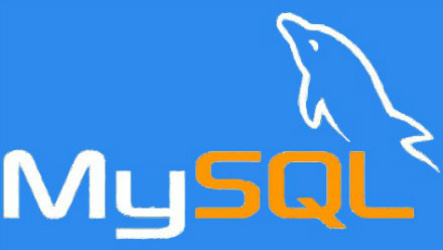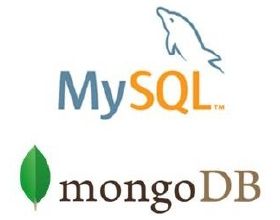 Database
Database
 Mysql Tutorial
Mysql Tutorial
 How to use cache optimization? Summarize cache optimization example usage
How to use cache optimization? Summarize cache optimization example usage
How to use cache optimization? Summarize cache optimization example usage
This article is the continuation of the first cache optimization article in the MySQL optimization series. It introduces all aspects of cache optimization in more detail. I hope you will like MySQL. There are caches everywhere inside. I will come back when I read the source code of MySQL. Detailed analysis of how cache is used. This part mainly covers various explicit cache optimizations: query cache optimization result set cache sorting cache join connection cache table cache Cache and table structure definition cache Cache table scan cache buffer MyISAM index cache buffer log cache read-ahead mechanism delayed table and temporary table 1 , Query cache optimization The query cache not only caches the query statement structure, but also caches the query results. Within a period of time, if it is the same SQL, the results will be read directly from the cache to improve the efficiency of data search. But when the data in the cache is inconsistent with the data in the hard disk, the cache will become invalid. mysql> show variables like '%query_cache%'; +----------------
1. MySQL Optimization Detailed Explanation of Cache Optimization (2)

#Introduction: This article is the continuation of the first cache optimization article in the MySQL optimization series. It will introduce all aspects of cache optimization in more detail. I hope You may like
2. MySQL optimization cache optimization detailed explanation (1)

Introduction: The most frequently asked question is about MySQL database performance optimization, so I recently plan to write a series of articles on MySQL database performance optimization, hoping to help junior and intermediate MySQL DBAs and This is helpful to other friends who are interested in MySQL performance optimization.
3. 21 Best MySQL Performance Optimizations

##Introduction: 1. Optimize your queries for query caching. Most MySQL servers have query caching turned on. This is one of the most effective ways to improve performance, and it's handled by the MySQL database engine. When many of the same queries are executed multiple times...
4. CI framework database query cache optimization method_php example
Introduction: This article mainly introduces the CI framework database query cache optimization method, and combines the example form with a more detailed analysis of the opening, closing, use, clearing and other related operation skills of the cache in the CI framework. For precautions, friends in need can refer to
##5.Introduction to PHP skills: Use APC cache to optimize PHP programs ##Introduction: Introducing PHP skills: using APC cache to optimize PHP programs
6.
Using APC cache to optimize PHP programs_PHP tutorialIntroduction: Use APC cache to optimize PHP programs. Alternative PHP Cache (APC) is a free and public optimized code cache for PHP. It is used to provide a free, open and robust framework for caching and optimizing PHP intermediate code. APC official
7.
laravel installation zend opcache accelerator tutorial_PHP tutorialIntroduction: laravel installation zend opcache accelerator Tutorial. The laravel installation zend opcache accelerator tutorial takes the article page as an example. Through chrome packet capture, the waiting time reaches 147ms. In fact, before caching optimization, this page has about 4 sql statements,
8.
Laravel installation zend opcache accelerator tutorial, laravelopcache_PHP tutorialIntroduction: laravel installation zend opcache accelerator tutorial, laravelopcache. Laravel installation zend opcache accelerator tutorial, laravelopcache Taking the article page as an example, through chrome packet capture, the waiting time reaches 147ms. In fact, before caching optimization, this page is about
9. PHP Tips: Use APC Cache to Optimize PHP Programs
Introduction: PHP Tips: Use APC Cache to Optimize PHP Programs
10. Use APC cache to optimize PHP programs
Introduction: Use APC cache to optimize PHP programs. Alternative PHP Cache (APC) is a free and public optimized code cache for PHP. It is used to provide a free, open and robust framework for caching and optimizing PHP intermediate code. APC official
[Related Q&A recommendations]:
java - Is there a mature solution for mongodb with redis cache?
The above is the detailed content of How to use cache optimization? Summarize cache optimization example usage. For more information, please follow other related articles on the PHP Chinese website!

Hot AI Tools

Undresser.AI Undress
AI-powered app for creating realistic nude photos

AI Clothes Remover
Online AI tool for removing clothes from photos.

Undress AI Tool
Undress images for free

Clothoff.io
AI clothes remover

Video Face Swap
Swap faces in any video effortlessly with our completely free AI face swap tool!

Hot Article

Hot Tools

Notepad++7.3.1
Easy-to-use and free code editor

SublimeText3 Chinese version
Chinese version, very easy to use

Zend Studio 13.0.1
Powerful PHP integrated development environment

Dreamweaver CS6
Visual web development tools

SublimeText3 Mac version
God-level code editing software (SublimeText3)

Hot Topics
 1663
1663
 14
14
 1421
1421
 52
52
 1315
1315
 25
25
 1266
1266
 29
29
 1239
1239
 24
24
 When might a full table scan be faster than using an index in MySQL?
Apr 09, 2025 am 12:05 AM
When might a full table scan be faster than using an index in MySQL?
Apr 09, 2025 am 12:05 AM
Full table scanning may be faster in MySQL than using indexes. Specific cases include: 1) the data volume is small; 2) when the query returns a large amount of data; 3) when the index column is not highly selective; 4) when the complex query. By analyzing query plans, optimizing indexes, avoiding over-index and regularly maintaining tables, you can make the best choices in practical applications.
 Can I install mysql on Windows 7
Apr 08, 2025 pm 03:21 PM
Can I install mysql on Windows 7
Apr 08, 2025 pm 03:21 PM
Yes, MySQL can be installed on Windows 7, and although Microsoft has stopped supporting Windows 7, MySQL is still compatible with it. However, the following points should be noted during the installation process: Download the MySQL installer for Windows. Select the appropriate version of MySQL (community or enterprise). Select the appropriate installation directory and character set during the installation process. Set the root user password and keep it properly. Connect to the database for testing. Note the compatibility and security issues on Windows 7, and it is recommended to upgrade to a supported operating system.
 MySQL: Simple Concepts for Easy Learning
Apr 10, 2025 am 09:29 AM
MySQL: Simple Concepts for Easy Learning
Apr 10, 2025 am 09:29 AM
MySQL is an open source relational database management system. 1) Create database and tables: Use the CREATEDATABASE and CREATETABLE commands. 2) Basic operations: INSERT, UPDATE, DELETE and SELECT. 3) Advanced operations: JOIN, subquery and transaction processing. 4) Debugging skills: Check syntax, data type and permissions. 5) Optimization suggestions: Use indexes, avoid SELECT* and use transactions.
 Can mysql and mariadb coexist
Apr 08, 2025 pm 02:27 PM
Can mysql and mariadb coexist
Apr 08, 2025 pm 02:27 PM
MySQL and MariaDB can coexist, but need to be configured with caution. The key is to allocate different port numbers and data directories to each database, and adjust parameters such as memory allocation and cache size. Connection pooling, application configuration, and version differences also need to be considered and need to be carefully tested and planned to avoid pitfalls. Running two databases simultaneously can cause performance problems in situations where resources are limited.
 Laravel Eloquent ORM in Bangla partial model search)
Apr 08, 2025 pm 02:06 PM
Laravel Eloquent ORM in Bangla partial model search)
Apr 08, 2025 pm 02:06 PM
LaravelEloquent Model Retrieval: Easily obtaining database data EloquentORM provides a concise and easy-to-understand way to operate the database. This article will introduce various Eloquent model search techniques in detail to help you obtain data from the database efficiently. 1. Get all records. Use the all() method to get all records in the database table: useApp\Models\Post;$posts=Post::all(); This will return a collection. You can access data using foreach loop or other collection methods: foreach($postsas$post){echo$post->
 RDS MySQL integration with Redshift zero ETL
Apr 08, 2025 pm 07:06 PM
RDS MySQL integration with Redshift zero ETL
Apr 08, 2025 pm 07:06 PM
Data Integration Simplification: AmazonRDSMySQL and Redshift's zero ETL integration Efficient data integration is at the heart of a data-driven organization. Traditional ETL (extract, convert, load) processes are complex and time-consuming, especially when integrating databases (such as AmazonRDSMySQL) with data warehouses (such as Redshift). However, AWS provides zero ETL integration solutions that have completely changed this situation, providing a simplified, near-real-time solution for data migration from RDSMySQL to Redshift. This article will dive into RDSMySQL zero ETL integration with Redshift, explaining how it works and the advantages it brings to data engineers and developers.
 The relationship between mysql user and database
Apr 08, 2025 pm 07:15 PM
The relationship between mysql user and database
Apr 08, 2025 pm 07:15 PM
In MySQL database, the relationship between the user and the database is defined by permissions and tables. The user has a username and password to access the database. Permissions are granted through the GRANT command, while the table is created by the CREATE TABLE command. To establish a relationship between a user and a database, you need to create a database, create a user, and then grant permissions.
 MySQL: The Ease of Data Management for Beginners
Apr 09, 2025 am 12:07 AM
MySQL: The Ease of Data Management for Beginners
Apr 09, 2025 am 12:07 AM
MySQL is suitable for beginners because it is simple to install, powerful and easy to manage data. 1. Simple installation and configuration, suitable for a variety of operating systems. 2. Support basic operations such as creating databases and tables, inserting, querying, updating and deleting data. 3. Provide advanced functions such as JOIN operations and subqueries. 4. Performance can be improved through indexing, query optimization and table partitioning. 5. Support backup, recovery and security measures to ensure data security and consistency.



